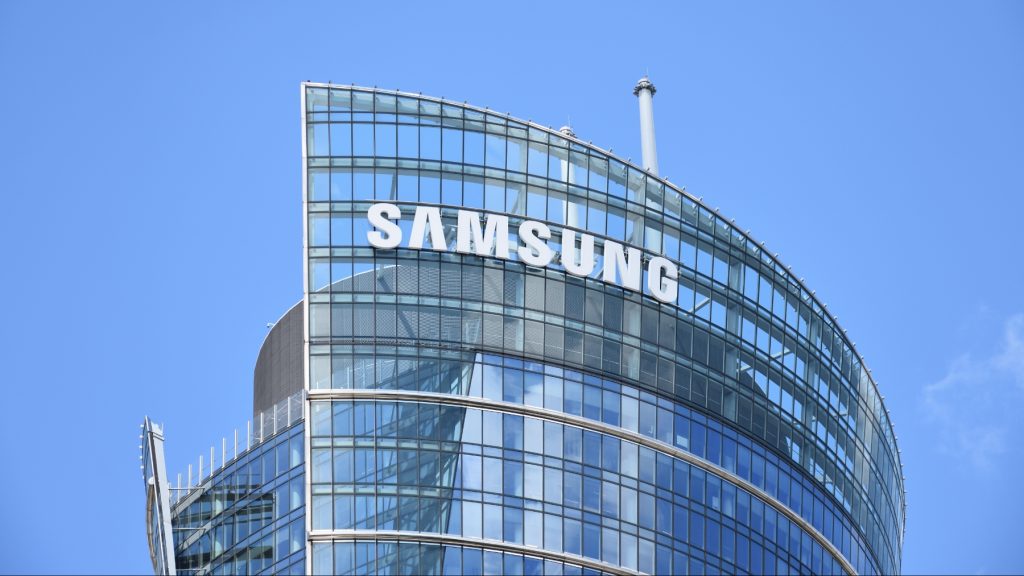
Samsung Q2 Electronics reported higher-than-expected revenue and operating profit for the second quarter, thanks to strong demand for its advanced memory chips crucial for AI training.
Samsung Electronics reported higher-than expected revenue and operating profit for its second quarter (Q2), driven by powerful demand for its advanced AI training memory chips.
The South Korean giant’s revenue for the quarter ended June reached 74.07 trillion Korean won (approximately $53.45 billion), surpassing analysts’ estimates of 73.74 trillion Korean won. Operating profit stood at 10.44 trillion Korean won, exceeding the predicted 9.53 trillion Korean won.
The impressive results represent a 23.42% increase in revenue and a staggering 1,458.2% surge in operating profit year-over-year (YoY), fueled by strong demand from customers seeking to grow their AI investments through the application of high-bandwidth memory and conventional dynamic random-access memory.
Demand for AI with New Products
Looking ahead, Samsung expects robust demand for server AI products, such as HBM, server DRAM, and solid-state drive products. To meet the surging demand, the company lans to increase its capacity to produce HBM and server DRAM, which will further strain the supply of traditional memory chips.
On the earnings call, Samsung outlined its strategies to meet this demand by boosting sales of HBM3E, its newest AI memory product, capacity expansion in the second half of the year, and increased sales of SSDs currently in demand by AI servers.
Samsung also announced a second-quarter dividend of 361 won per common and preferred share, amounting to around 2.45 trillion won, to be paid by late August of this year. Following the earnings report, Samsung shares soared as much as 1.35% on Wednesday morning.
Memory Chip Market Dynamics
The boom could benefit top memory chipmakers like Samsung Electronics and SK Hynix. Analysts predict sequential profit growth for Samsung Electronics through 2025, as average selling prices of memory are expected to increase for multiple quarters.
Prices of memory chips fuel business recovery at Samsung as the demand for AI-driven memory chips sends it to a strong drive after record losses incurred in 2023 due to the post-Covid slump. Analysts predict that the trend of memory price hikes will continue through 1H25, driven by robust demand for HBM and high-density enterprise SSDs.
Reports have it that Samsung has passed tests to supply HBM3 chips for use in Nvidia processors in the Chinese market. As of today, SK Hynix leads the market in HBM memory chips and has been the only supplier of the HBM3 chips to Nvidia.
Challenges in the Smartphone Market
It has been bittersweet for Samsung Q2, with the memory chip business firing on all cylinders while smartphone sales were down in the second quarter because of the base effect of new model launches in the first quarter. Notwithstanding that, the Galaxy S24 series continued to show strong demand. Although it did note that smartphone demand fell sequentially in the seasonally weak quarter, especially in the premium segment, Samsung does believe the latter will grow in the second half, even as the mass segment may lose some steam.
Profitability in the smartphone business dropped due to key component price hikes. Samsung has vowed to continue touting its premium Galaxy AI products, with the announcement of global availability for the newest lineup of Galaxy devices, including the Galaxy Z Fold6, Z Flip6, Watch Ultra, and Ring.
According to Neil Shah, research vice president at Counterpoint Research, Samsung is bound to deliver better operational performance in the second half, driven by memory chips and the premiumization trend of smartphones. However, it would have a major presence with SK Hynix and Micron, which would challenge Samsung in the memory segment, more so with HBM.
Final Thoughts
The strong Samsung Q2 earnings now prove that the company is definitely riding on the wave of growing demand for AI memory chips. That is quite a lot to achieve for a company which has invested strategically and grown in line with market needs. With a wide array of state-of-the-art memory products, including HBM3E and SSDs, Samsung is well on its way to continuing leadership in AI and semiconductor markets.
Issues, however, beset the company, particularly in its smartphone segment. Competition is very stiff, and further, profitability has been hit by the rising costs of components. For Samsung, it is imperative to continuously bring more innovative AI-powered Galaxy products and create long-term growth engines to make current position sustainable.
The balancing act that Samsung must navigate between high demand for memory chips and competitive pressures in the smartphone market would be the key to all these dynamics. It has been an extreme expansion of product lines and augmenting capacity to stay ahead in the race. Against this backdrop of the AI boom, which would see memory solutions, Samsung’s approach toward AI and semiconductor technology may just become the cornerstone of its future success.
Inside Telecom provides you with an extensive list of content covering all aspects of the tech industry. Keep an eye on our Tech sections to stay informed and up-to-date with our daily articles.